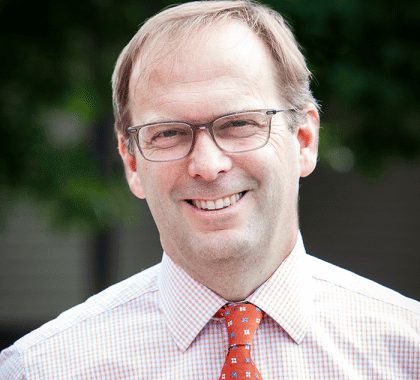I can barely believe that this is the last official Scoop article of the year. Fresh off the fields from Field Day, I feel as though I have simultaneously only just begun and been here for decades. This has been an extraordinary year full of growth, learning, excellence, and joy, and I am so grateful to have been along for this incredible ride. Only yesterday, I had the chance to watch the tower building project and robotic arm and prosthetic hand project on display in fifth grade, watch the semi-finals of the Junior Solar Sprint and sign countless certificates of achievement for our sixth grade mathematicians, and watch closing night of Annie, the seventh and eighth grade musical. All equally comfortable and familiar and all at once brand new and original.
All of this comes, as one might expect, with that heartstring tug. All of these incredible eventsthe field trips for first grade to the Ecotarium and pre-k to Drumlin Farm, and the pending middle school athletics banquetcome with the excitement of concluding a year well spent and the pang of sadness at its conclusion. Of course, none of this has even broached the larger looming changethat of the seasonsthat truly marks a school year’s passage: summer.
Summer. It is the seasonal reset button for our children. They cross the finish line in June and, for many of them, September might just as well be in the next decade. For their teachers, of course, there is a bit of reset, too. A chance to recharge and, for many, to renew something about their practice through a summertime workshop or other professional development opportunity. So, for all of this refreshing, recharging, and relaxing, is there any room for a new learning experience? Is there an opportunity, through an entirely different frame, to begin a new summertime journey that somehow continues to align itself with our values and our mission? I spent the week asking a few folks who are well equipped with an answer. In Bea Rooney, Andy Rentschler, Dean Spencer, and Diane Foster, we have four folks on campus who are intimately acquainted with the power of summertime learning as they all are (or have been) very closely associated with summer camp programming. So, I asked each of them what might summer hold for a family who chooses a camp? What is the importance of summer programming to you? This was how they responded to me:
Bea Rooney – Belmont Day Summer Camp
Summer camp provides children with a unique opportunity for growth, exposure to attainable role models, and the chance to shine in ways we don’t always see in the classroom.
Camp provides time to focus on how to be a good friend, resolve a disagreement with someone, do something you’ve never done before or aren’t good at, and generally how to be a good community member in an environment free of judgment, formal evaluation, or emphasis on product.
At camp, we watch children utilize problem solving skills in new and different ways that make you realize their abilities are transferable, gain confidence as they master a new skill, become more independent, and take on an increased level of responsibility by intentionally reducing supervision in a structured environment as they get older.
Camp is one of few places left where young adults are fully responsible for the care of younger children. This provides the opportunity for young adult counselors to develop skills and take on a role that requires real, important responsibility for the safety and well-being of their campers. It also means that campers are cared for by someone they don’t associate with the idea of “parent” or “teacher.” Campers can truly imagine themselves as their counselors in a way that they can’t with most other grown-ups in their lives. This relationship can often be a formative and impactful one for campers and as a result staff have an incredibly important responsibility to lead by example.
Children who don’t necessarily shine in a traditional school setting or aren’t the best athlete or actor or artist often have opportunities at camp to be good at something or lead. The types of skills that camp highlights aren’t traditional academic ones and as a result serve an incredibly important opportunity for these campers to build confidence and feel a sense of pride and accomplishment.
Andy Rentschler – Camp Belknap, Tuftonboro, NH
When I think of summer campspecifically, Camp Belknap, a traditional overnight camp for boys where I spent 15 yearsone aspect stands out among the rest: being present. While the world clamors to find affirmation in retweets, likes, “friends,” or followers, summer camp has never needed that. Instead, camp is enjoyed through a series of snapshots of life that are engrained in our memories because even photographs fail sometimes. The memories that are made, and kept, at camp are long-lasting because they were appreciated right then and there in the moment.
Such a phenomenon is best exhibited by camps that choose to be technology-free. When you think about it, technology was created to accomplish a task more easily and quickly, but when has that ever fit into the philosophy of summer camps? Camps thrive on the ability to get back to basicsmaking your bed each morning, writing letters home, learning a new skill, or creating an elaborate game from just two sticks and a rock. In doing so, there is a far greater appreciation for not only the destination but also the journey.
Dean Spencer – Killooleet, Hancock, VT
For children ready to think about overnight camp, summer can open many opportunities. Summer should be about lifelong learning, not about resume building. A good overnight camp will facilitate exposure to arts, sports, and outdoor activities and instruction, and gives children the chance to explore deeply the ones they find most intriguing. Look for a camp that shares your family’s values, and provides children both structure and freedom within boundariesthe experience of choice is invaluable. But the social and emotional growth that comes from taking these concrete steps toward independence are even more important, and can be a hard gift to give your child. Our camp is structured the way it is because my father-in-law found in his doctoral research that children in a full summer camp setting often experience as much social and emotional growth as they do in a year of school. In my first (adult) summer at Killooleet, I was amazed by campers’ growth in specific activity areas: this child built furniture in wood shop, that one started from scratch and was performing solo guitar songs for all of camp at the end. Looking more carefully with a teacher’s eyes, I realized the true magic is in the mix of skills that are developed in cabin life, and that make deep individual learning possible within a community. These skills are both personal (planning, decision making, self-management) and interpersonal (teamwork, negotiation, relationship building), and they provide an invaluable foundation for self-directed future learning in any sphere. Children return from a well-run sleep-away camp with both competence and confidence.
Diane Foster – Fleur de Lis Camp for Girls, Fitzwilliam, NH
I didn’t go to camp as a child, but beginning in college, I started working at an overnight camp for girls in New Hampshire. I thought it would be a fun way to spend a summer, but once I experienced it, I went back year after year after year.
I now serve on the board of that camp and my daughters have both been campers there for several years. There are a few things in particular that stand out to me about the experience of going to camp for a child, particularly overnight camp. Children today lead very structured and programmed lives. Overnight camp is a great balance of structure and freedom. Knowing what to do in your free time is now a learned skill where in previous generations it was just part of life. Organizing, problem-solving, negotiating, improvising, leading, compromising, and motivating others are just some of the skills children are building when they need to figure out how to entertain themselves. They are not just building these things as skills, but growing traits that will serve them throughout life. And these traits are being developed in an atmosphere of sheer fun, laughter, singing, and joyfulness.
The greatest thing I and my daughters have gained from camp, though, is confidencethe confidence that you need to be your most authentic and powerful self. Different things are important at camp. It’s not about what you’re wearing or your grades or what size your house is or the popularity of your friends. At an all girls camp, in particular, there is a shedding of the pressures and expectations of the school year. It’s a simpler world and that allows kids to shine as themselves, which in turn allows them to trust themselves and believe in their own abilities. My daughters return from camp with such a strong sense of who they are and a willingness to take on those things that are challenging for them, socially and academically. I believe this confidence is the greatest gift I am giving them and that their life at camp is one of the most defining experiences of their lives.
These testimonials are not offered to suggest that the only answer to summertime is to be in a camp. Indeed, there are many families who find the peace and quiet of summer the precise antidote for a school year’s worth of hard work. This is simply to say that summer need not be a season lost to the lifelong pursuit of learning, growing, and developing.
However you choose to spend yours, I hope it is a great one. Mine will be one spent in reflection on one of the most incredible years I have ever spent professionally, and with an enthusiastic eye cast onto the early days of September and the community’s return to Belmont Day.
Have a great weekend, everyone.



